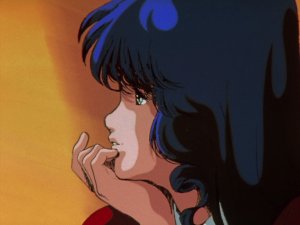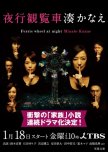Murder mysteries rarely touch upon the lasting impact of the crime. We see little beyond investigation, that twisting game of "Who? How? Why?" played by detectives. Our terminus tends to be the apprehension of the wrongdoer and their ultimate punishment. But what befalls the loved ones of both parties (victim and criminal alike)? How does the surrounding community react and change? In this hauntingly beautiful synthesis between suspense and human drama, such elements are explored thoughtfully alongside a capable mystery.
As implied above, Yakou Kanransha delves into the effects a shocking murder has on two families (and the town in which they live). It is an emotional story marked by highs and lows, much like the ever-rotating path the titular Ferris wheel follows. Other issues tackled over its course include bullying (by neighbors and classmates), ostracization, domestic violence, and societal pressure. Unlike many other Japanese dramas with such a focus, family is not held on a pedestal. Instead we're shown a realistically flawed structure, full of secrets and misunderstandings. Despite this, beauty remains to be found in the connection between friends, brothers and sisters, parents and children; something so imperfect can still be wonderful.
Most incredible might be how deftly these emotive aspects are combined with exciting, cerebral ones. Character development intermingles flawlessly with shocking revelations and startling secrets. Scenes are rarely lingered on; the pacing maintains a seamless stability throughout the series.
Japan excels at the ensemble piece; Yakou Kanransha boasts a large cast which more than lives up to this standard. Suzuki Kyoka clocks in a believable and solid performance as Endo Mayumi. This role is written simply so she might serve as our eyes into this fantastic circumstance; despite this, Suzuki-san completely brings her to life. Among the other adults, Yasuda Shota and Natsuki Mari are of great interest. Natsuki-san plays an especially polarizing part, yet her consistent and complex portrayal makes quite the impression.
But young actors Nakagawa Taishi (15) and Sugisaki Hana (16) completely steal the show. Both deliver honest and affecting performances beyond their years. Particularly Nakagawa-san; it floored me how drawn into his scenes I became as the series rolled along. Definitely a budding career to watch.
If like me, music comprises an important part of your viewing experience: take heart. Yakou Kanransha posesses an immaculate soundtrack, full of richly mysterious strings and hollow piano. There are also fine vocals, such as those from Ai (ending theme "Voice," which exudes action), and Reiko Oshima ("Daydreaming," a hopeful ballad with a bittersweet feel). Other highlights include the masterful use of sound effects; during particularly intense scenes, one can sometimes hear the grinding machinery and clacking carts of the Ferris wheel. Also take note of its use as imagery between scenes; you'll never forget the way it looks, brightly lit at night.
Was this review helpful to you?























